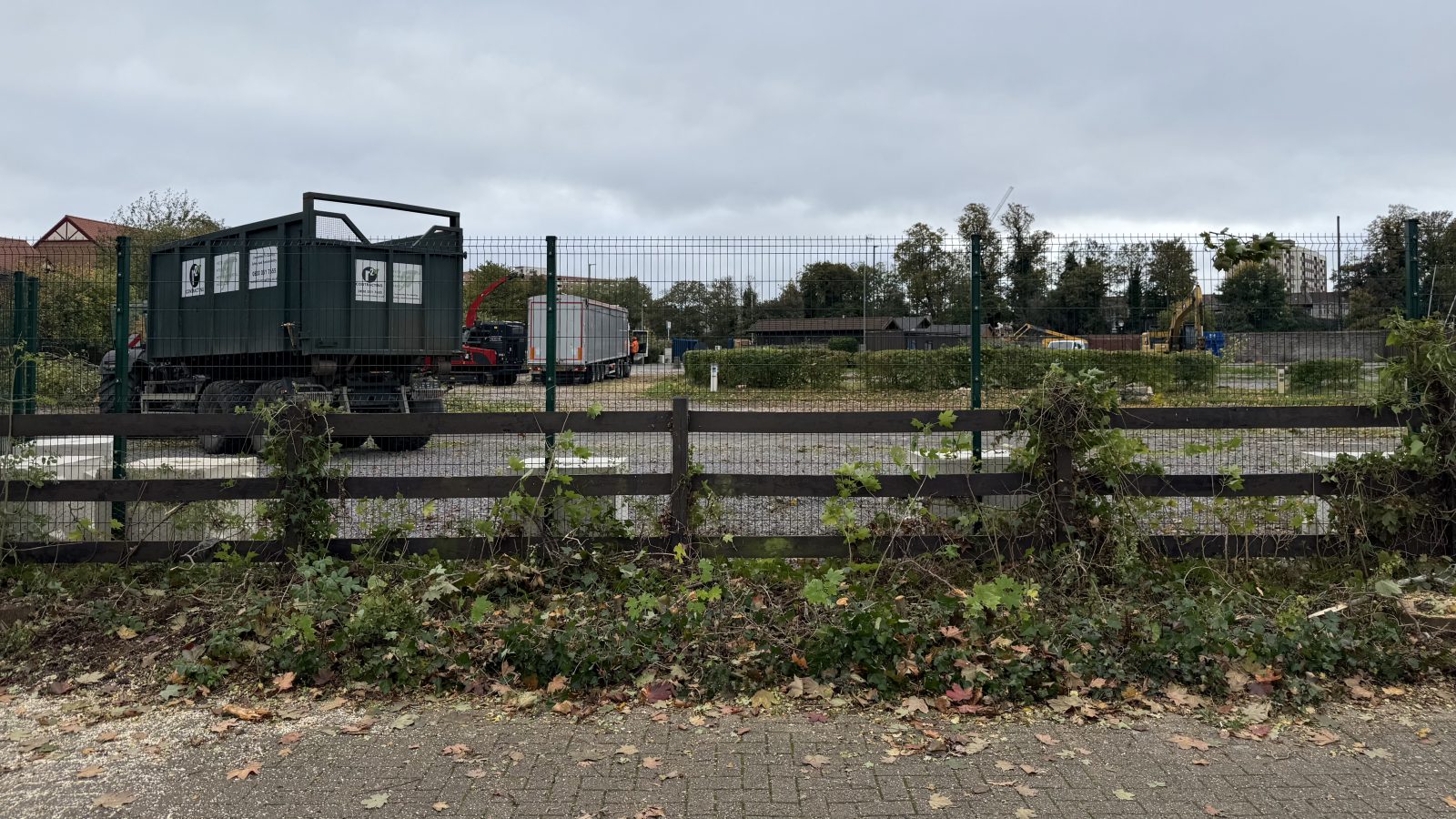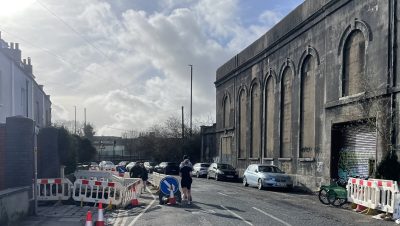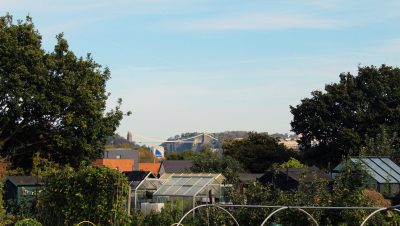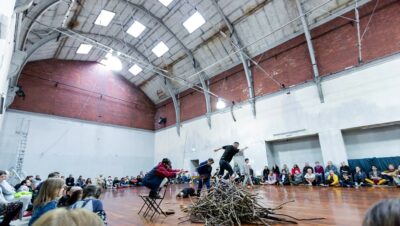Your say / Baltic Wharf
‘This is not about trees versus homes’
As I cycled home along the harbour on Monday night, I was shocked to see the former caravan site at Baltic Wharf denuded of its hedgerow and trees.
We knew it was going to happen. But I don’t think anyone expected it to be so soon or so brutal.
For the past 18 months, I have been working with Bristol Climate & Nature Partnership and Hotwells & Cliftonwood Community Association, developing a community climate action plan with communities in Hotwells, Clitonwood and Spike Island.
is needed now More than ever
Priorities raised by local people include respect for existing communities and nature in the face of urban development; slower speeds on roads and more space for pedestrians and cyclists; and places to buy local food.
Community gardens and green public spaces were also high on the list.
We decided to title our plan ‘Connected Communities’ in recognition that, within cities, we need to work with neighbouring areas to create positive change for everyone and that nature doesn’t understand ward boundaries.
We know we’re not the only residents in Bristol who have legitimate questions when it comes to the sustainability of new developments.
But trying to ask these questions to the people who have the power to listen and act on concerns is usually dismissed as being anti-home building; and we’re told that people need new homes.
Our voices are quickly silenced.
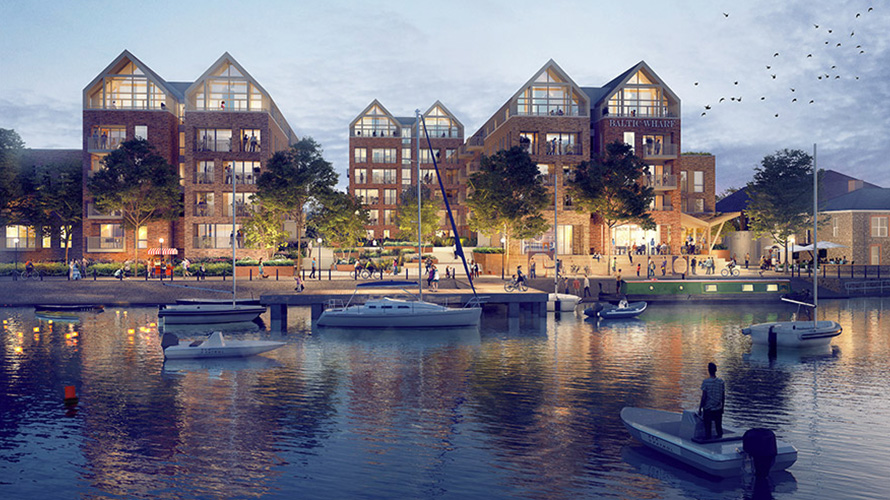
166 new flats will be built as part of the Baltic Wharf development on the former caravan site – image: Goram Homes
Trees are great connectors. They provide us with sound barriers, they store carbon for us, they give us oxygen and they cool our cities.
Did you know that Hotwells and the harbourside have some of the hottest homes in Britain?
Tree roots stabilise the soil and prevent subsidence and protect against flooding. They offer homes to birds, insects, small animals and they look really pretty, especially in the spring and autumn.
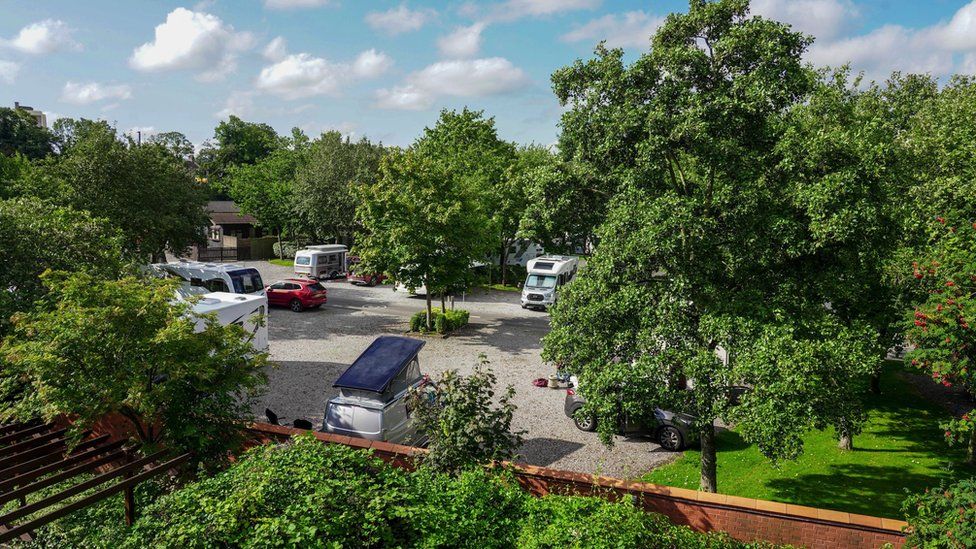
Baltic Wharf is described by Bristol City Council as a ‘brownfield’ site. All of its trees have now been felled – photo: Bristol Tree Forum
But this is not about trees versus homes.
The flats that Goram Homes are planning to elevate to seven storeys high on the former caravan site will be subsidised using public money to build them.
I could rant about why we don’t make the private sector pay more but people would rant back at me about being real in this capitalist world we live in. So I will silence my thoughts on that.
What really concerns me is respect for and belief in our existing neighbourhood, both for humans and nature.
In Hotwells, we are a traditionally mixed community. We would welcome homes that people can afford.
In recent years, however, new homes built around the harbour don’t seem to have been built for the people who we perceive ‘need’ new homes.
If these new homes are genuinely affordable and intended to house, for example, the man who sleeps in his tent under the flyover near the Cumberland Basin and packs it up to go to work every morning; or the single mum with three autistic children, working class, evicted from her south Bristol community on the whim of landlord; or those poor families, fleeing war and drought, living in one room in a hotel, unable to sleep when the baby cries, unable to cook and now too afraid to go out, then I would probably choose them over the trees.
But I wonder why we can’t have both the homes and the trees? Surely that’s not beyond civic capacity?
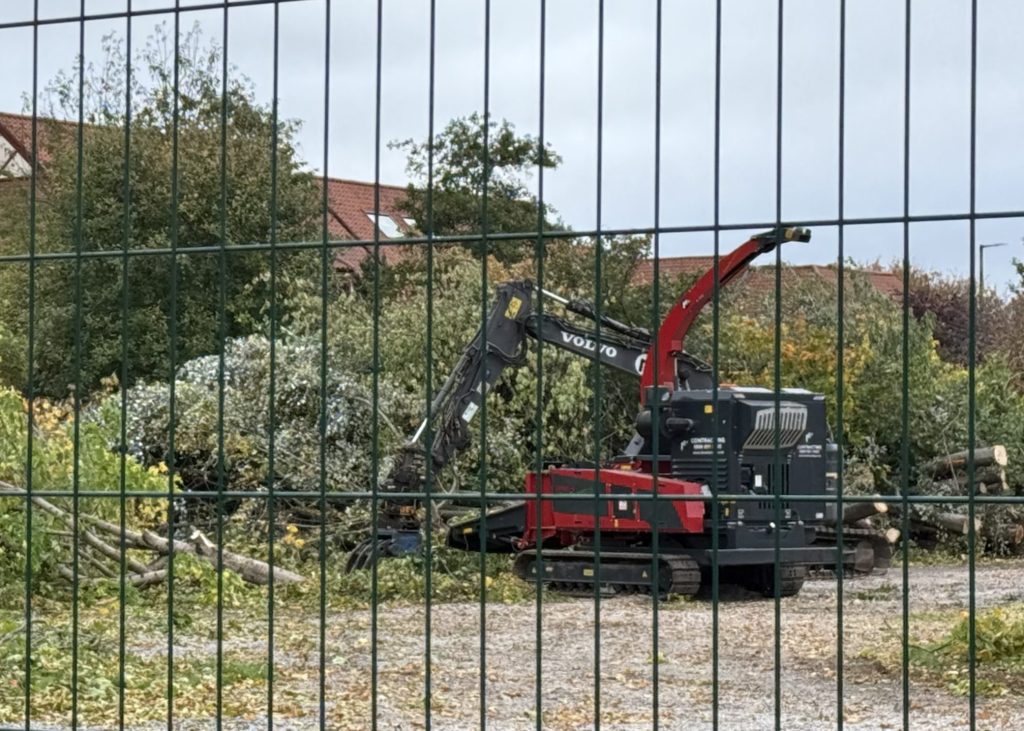
The former caravan site at Baltic Wharf is now bereft of trees – photo: Martin Booth
So it looks like the homes have seen off the trees at Baltic Wharf. Let’s hope they are created alongside vital community infrastructure much needed in Hotwells.
We have no GP and may even be losing our primary school.
Baltic Wharf Trees RIP. We will miss you! To be replaced with affordable homes? We’re watching this space.
This is an opinion piece by Anna Haydock-Wilson, a resident of Spike Island who works in community engagement across Bristol and beyond
Main photo: Martin Booth
Read next:
 Our newsletters emailed directly to you
Our newsletters emailed directly to you